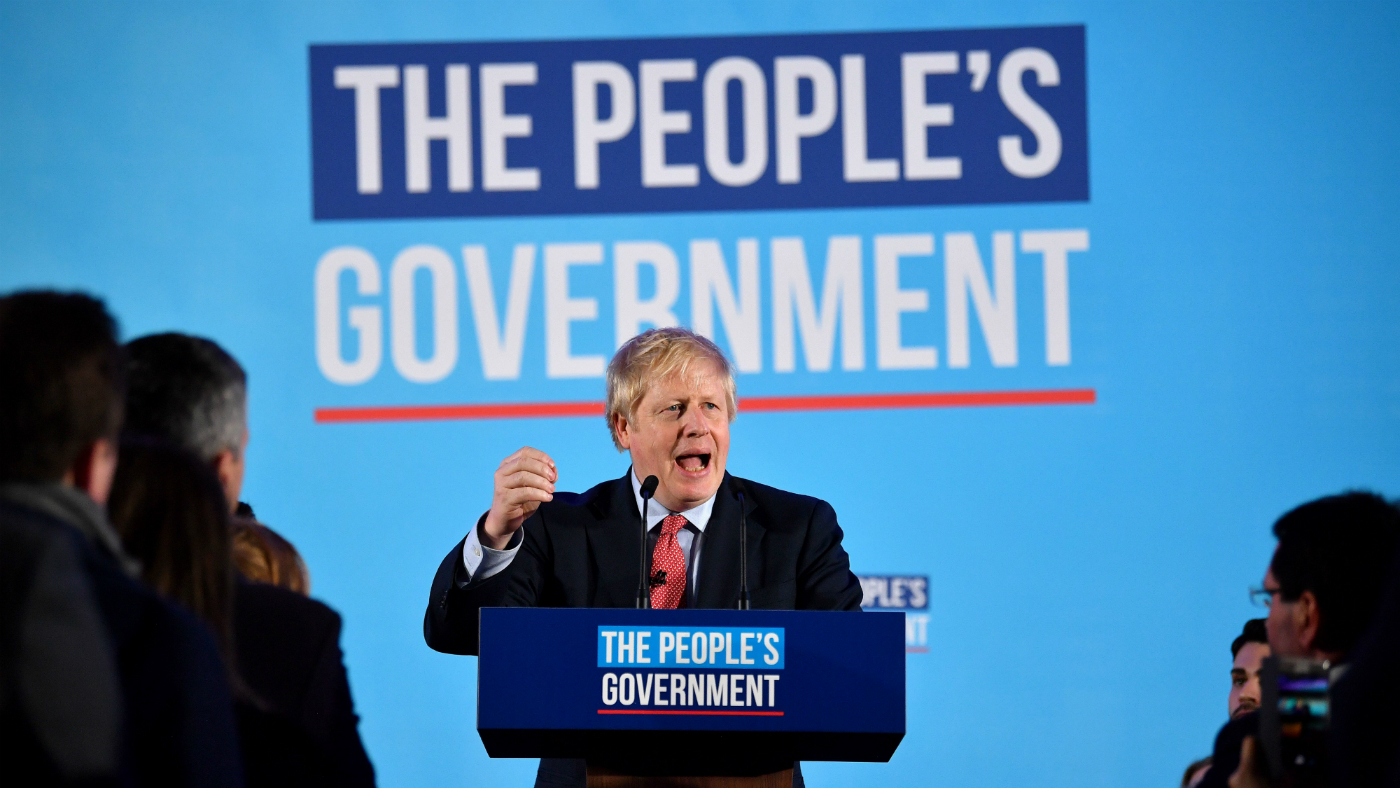Five reasons the Tories won the election
From Brexit to Boris Johnson, the key factors behind the Conservative’s landslide victory

A free daily email with the biggest news stories of the day – and the best features from TheWeek.com
You are now subscribed
Your newsletter sign-up was successful
Boris Johnson’s Conservative Party has secured 364 seats in the Tories’ biggest election win since Margaret Thatcher’s 1987 victory.
A jubiliant Johnson says his government has “been given a powerful new mandate - to get Brexit done, unite this country and take it forward”.
Yet few people expected the Conservatives to deliver such a huge majority. So what is behind the historic result?
The Week
Escape your echo chamber. Get the facts behind the news, plus analysis from multiple perspectives.

Sign up for The Week's Free Newsletters
From our morning news briefing to a weekly Good News Newsletter, get the best of The Week delivered directly to your inbox.
From our morning news briefing to a weekly Good News Newsletter, get the best of The Week delivered directly to your inbox.
Although it wasn’t the only issue on the table, Brexit dominated the discourse of the election.
The Guardian reports that Johnson’s much-repeated “get Brexit done” message “appears to have resonated with a public weary of the lack of resolution over the UK leaving the EU”.
“He stressed throughout the campaign that he would sort out the issue quickly with his ‘oven-ready’ deal, even though the UK is heading for years of trade negotiations and uncertainty at the end of next year when the transition period comes to an end,” the newpaper adds.
A free daily email with the biggest news stories of the day – and the best features from TheWeek.com
Jeremy Corbyn
There’s no getting around it - the Labour leader is one of the most unpopular politicians ever to have led a major party in the UK, and that cost Labour dearly.
Corbyn has been dogged by allegations of anti-Semitism within his party since taking the reins in September 2015, and has also been portrayed by opponents “as an ageing Marxist with unsavoury past associations with Hamas and the IRA”, says Singapore-based news site The Straits Times.
A YouGov poll for The Sunday Times at the end of November found that far more voters trusted Johnson than Corbyn, with just 21% of respondents saying they had confidence in the Labour leader.
–––––––––––––––––––––––––––––––For a round-up of the most important stories from around the world - and a concise, refreshing and balanced take on the week’s news agenda - try The Week magazine. Start your trial subscription today –––––––––––––––––––––––––––––––
Low-risk manifesto
As The Guardian notes, the Conservatives played it safe with their election manifesto, which “was short on eye-catching policy offers, beyond a small tax cut to National Insurance and a very modest increase in public spending”.
The Tories appear to have learned their lesson following Theresa May’s disastrous 2017 manifesto, which included an unpopular social care reform package that Labour dubbed the “death tax”.
“This time, the party steered clear of any controversial pledges,” the newspaper says. “The manifesto was so cautious it even contained promises not to do things, such as a pledge not to bring back fox-hunting.”
Online misinformation
Social media platforms were a critical battleground in the election campaign, as parties “bombarded voters with messages - many of them misleading”, with the Conservatives in particular criticised for “using underhanded tactics”, says The Strait Times.
According to an analysis by fact-checking site First Draft, nearly 90% of the more than 6,700 Facebook ads broadcast by the Conservatives during the first week of December contained or referred to misleading statements.
Campaign strategy
The Lib Dems, Conservatives, Brexit Party, Green Party and Plaid Cymru all employed tactical voting strategies by standing down candidates or purposefully targeting certain seats, with only the Labour Party refusing to get involved.
Instead, Labour simply focused on spreading its message to every corner of the country. The Guardian reports that “rallies were held in safe Birmingham and Bristol but also marginals such as Telford and Middlesbrough South and East Cleveland”.
Meanwhile, grassroots support movement Momentum, “which was a powerful campaigning force in 2017, focused its efforts only on the ultra-marginal seats and those that had a candidate aligned to its politics”, says the newspaper, which argues that this scattered approach “may have left some seats at risk”.
The outcome was the total demolition of Labour’s so-called “red wall” - a large collection of seats across the industrial heartlands of the Midlands and north of England.